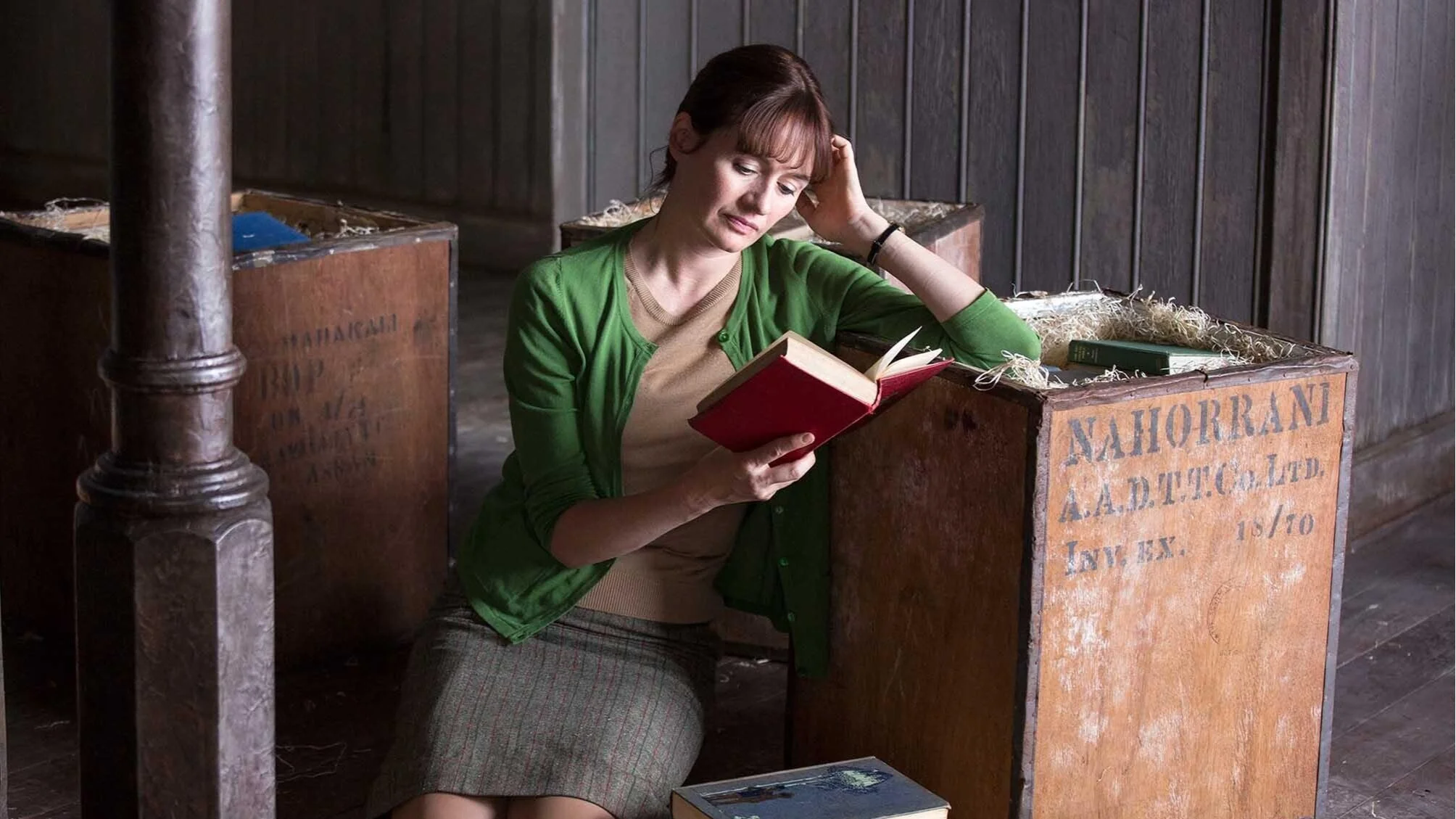The Bookshop
An English period tale of popular appeal mishandled in the telling.
Bibliophilia: Emily Mortimer
Penelope Fitzgerald's The Bookshop, her second novel, appeared in 1978 and this tale, set in an English seaside town in 1959, now comes to us in a film version adapted from the original by its director, Isabel Coixet. Although she has made other English language movies, Coixet hails from Spain and is thus an outsider taking on here a work that is quintessentially English in character and which would appear to fit the description 'tragi-comedy' (I have not read the novel). Whit Stillman's Jane Austen adaptation Love & Friendship (2016) confirmed that a foreigner can capture an alien idiom perfectly but The Bookshop in contrast never finds a consistent voice. How much that matters may depend on the taste of the viewer.
This is a story with a female character at its centre. This heroine is the relatively young widow Florence Green (Emily Mortimer) who acquires an old property in Hardborough planning not only to live there but to convert the major part of it into a bookshop. She is quite unaware of how she will be challenged and persecuted by Violet Gamart (Patricia Clarkson), a general's wife who has all the power and influence that flows from being the town's grand dame and who is determined to obtain Florence's property for use as an arts centre under her own patronage. Another local figure is Edmund Brundish (Bill Nighy) who lives alone but in some style: delighted to be introduced by Florence to the novels of Ray Bradbury, he becomes her supporter - but will he be able to save her from the machinations of Mrs Gamart?
As this plot description suggests, there is much here that could attract those who enjoyed the recent hit The Guernsey Literary and Potato Peel Pie Society and, while the shaft of hope at the end of The Bookshop may seem for some of them more overshadowed by its comparatively downbeat conclusion than they would wish, many such viewers may warm to this film despite its extreme tonal inconsistencies. Some tiresomely assertive music at the outset suggests a drama, but there's enough humour to make the film predominantly comic for a while. Perhaps encouraged by this, Coixet's approach favours the artificial: that applies equally to some of the supporting performances, to the emphasis that comes from some of the camera angles and to such scenes as that in which, when Florence is seen reading a letter from Edmund Brundish, we actually see Bill Nighy declaim it direct to camera. There is such an air of unreality that it becomes impossible for the film to switch to tragedy effectively, although both a death scene and the tale's condemnation of a defensively hostile society that echoes The Borough in Britten's opera Peter Grimes are clear evidence of a wish to be taken seriously.
For all my substantial misgivings, I can see that the appeal of the story will carry along many viewers ready to ignore the way in which it is told. What we can all probably agree on is the fact that Bill Nighy, playing the one character who stands out as a consistent and original creation, is at his very best here.
MANSEL STIMPSON
Cast: Emily Mortimer, Bill Nighy, Patricia Clarkson, Honor Kneafsey, Frances Barber, James Lance, Reg Wilson, Mary O'Driscoll, Hunter Tremayne, Lucy Tillett, Toby Gibson, Michael Fitzgerald, Barry Barnes.
Dir Isabel Coixet, Pro Jaume Banacolocha, Chris Curling, Joan Bas and Adolfo Blanco, Screenplay Isabel Coixet, from the novel by Penelope Fitzgerald, Ph Jean-Claude Larrieu, Pro Des Llorenç Miquel, Ed Bernat Aragonés, Music Alfonso de Vilallonga, Costumes Mercè Paloma.
Contracorriente Films/Zephyr Films/ONE TWO Films/Green Films/Mogambo-Vertigo Releasing.
113 mins. UK/Spain/Germany. 2017. Rel: 29 June 2018. Cert. PG.


